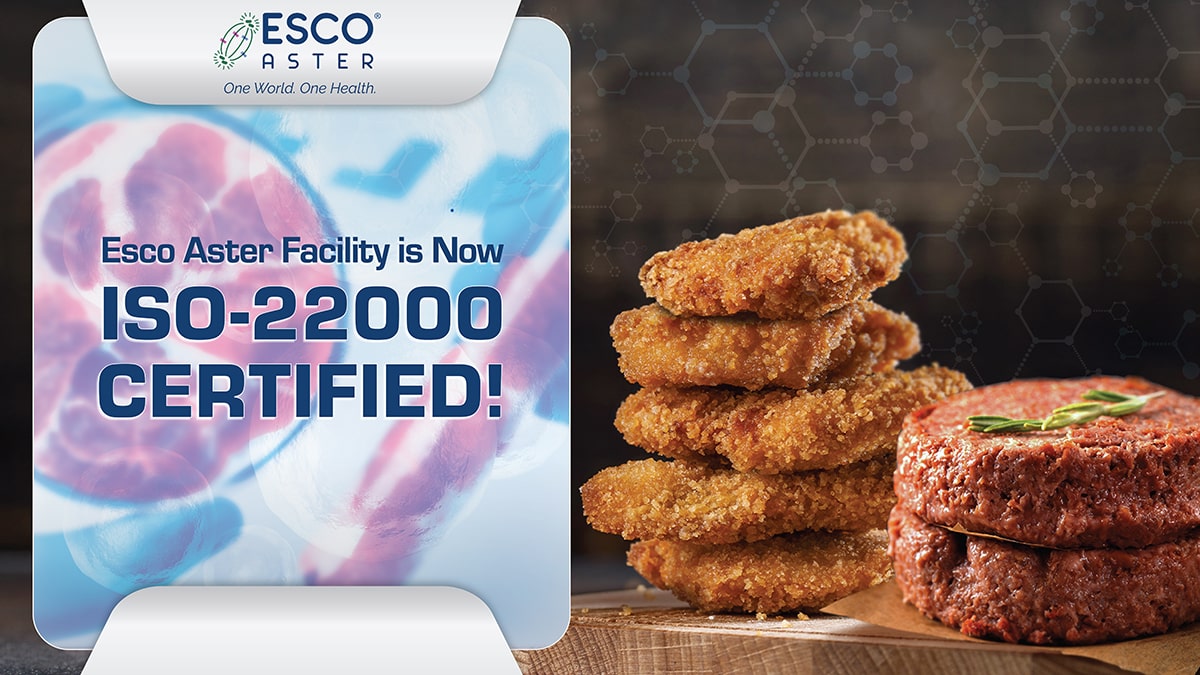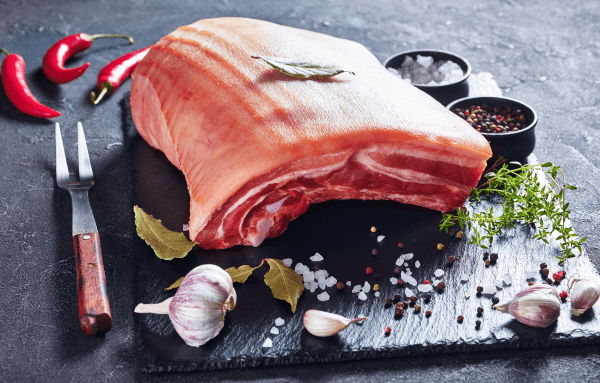
KEY POINTS
- Esco Aster was awarded the stringent ISO 22000 food safety certification on January 22, 2022, clinching another ‘world’s first’ in the cultivated meat scene.
- A 50,000 L bioreactor farm is taking shape with capabilities for linearly scaling cell culture.
SINGAPORE, 16 June 2022 – First in the world, the ISO 22000 food safety certification for Esco Aster's cultivated meat manufacturing facility, marks a significant step forward in environmentally friendly and sustainable meat production. This comes hot on the heels of its globally publicized win in receiving the world’s first license to manufacture cultivated meat for human consumption.
The certification clearly demonstrates Esco Aster’s commitment to safety and quality and its ardent vision to be a cornerstone in Singapore’s 30 by 30 vision to produce 30% of its own food by 2030. Esco Aster’s first and best in class CellFarm-to-Table™ platform will create significant opportunities to produce a variety of cultivated meat products under a stringent quality management system helmed by a team of experienced scientists.
The company is not resting on its laurels, however. It is currently designing x3 trains of 6,000 L bioreactors to scale up current cell culture operations and have secured a brownfield site in Singapore. With these developments, Esco Aster will see its total manufacturing volume balloon to a total capacity of up to 50,000 L.
“The future of cultivated meat is bright with Esco Aster’s ongoing expansion in the Precision Fermentation Center of Excellence in Taipei City. We are also tentatively looking at retrofitting an existing building leased from our parent, Esco Micro, for our bioreactor farm.”
Said Mr. Xiangliang Lin, CEO of Esco Aster and Deputy CEO of Esco Lifesciences Group, on Esco Aster’s expansion plans for cultivated meat manufacturing.
To further improve the economic viability of cultivated meat, Esco Aster is researching on reducing the costs of cultivated meat production through optimizing cell growth media usage, reducing or eliminating serum use and increasing cell growth efficiencies amongst other approaches.
In addition to manufacturing capabilities, Esco Aster is driving towards providing turnkey solutions by also setting up a sensory tasting kitchen where product formulation and sensory evaluations can take place. Armed with cutting edge research into sensomics and fermentation, sensory scientists and executive chefs will collaborate to develop hybrid cultivated meat products with bio-edible scaffolds for both in-house and white label purposes.

White labelling is gaining popularity in the food industry as it allows companies to outsource product development and manufacturing and focus on brand building and sales. Even supermarket chains such as Fairprice and convenience stores such as 7-11 have taken to this method to launch large ranges of house-branded products rapidly to compete with the usual brands.
“Esco Aster will be among the first to make white labelling a reality for cultivated meat products with our expertise and familiarity in cell culture, food and sensory science and in production scale-up. Our vertically integrated operations give us a distinct edge in this area,” Mr. Lin added.
Sustainability should be inclusive. As such, Esco Aster is once again making first moves by exploring the possibility of Halal cultivated meat. The company has initiated discussions with religious authorities to this end and has also approached Halal-certified food product companies in Singapore to discuss collaborations.
With such a broad range of concurrent developments, Esco Aster’s CellFarm-to-Table™ platform is poised to take center stage in providing the world with tasty and sustainable products, in a safe and regulated manufacturing environment.